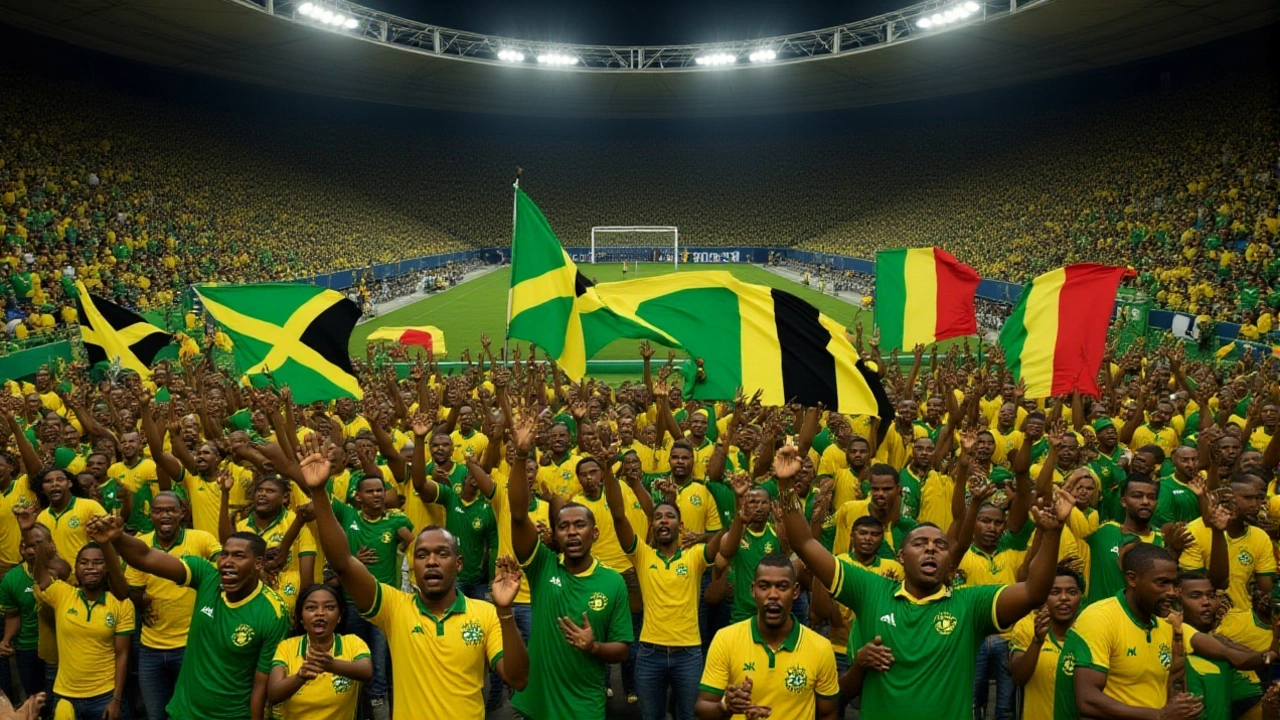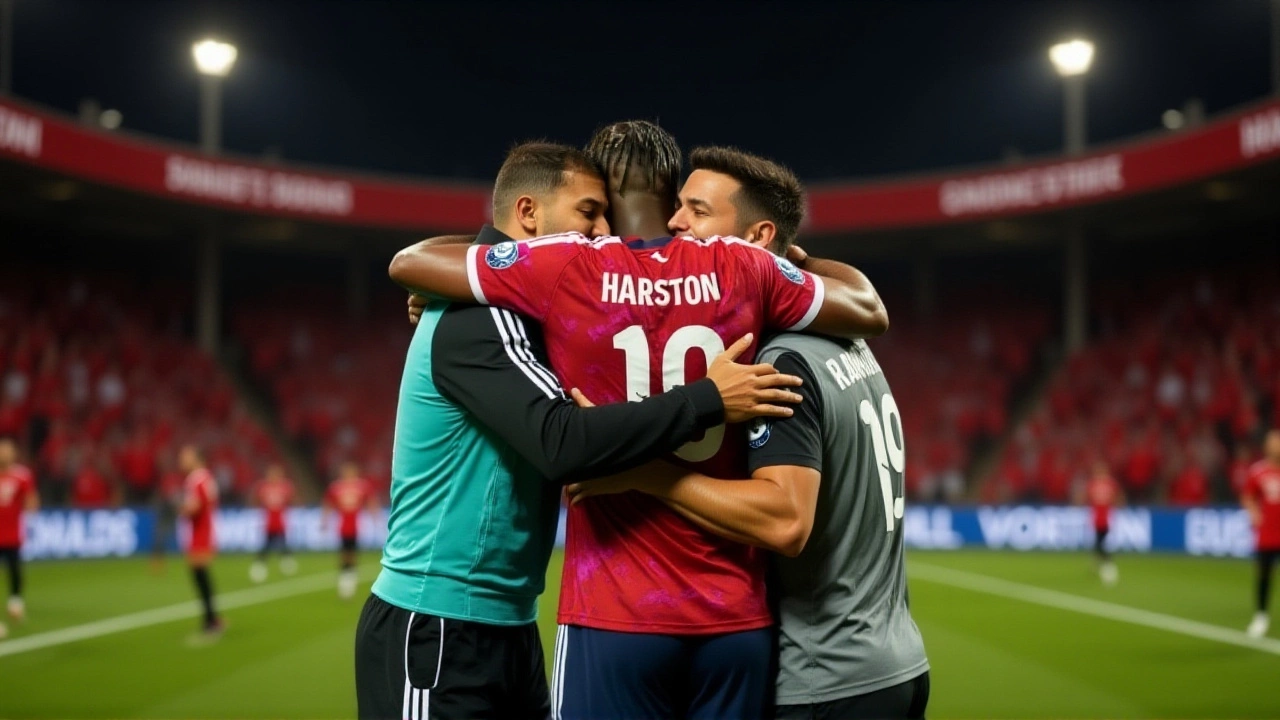Steve McClaren Resigns as Jamaica Manager After Missing Automatic World Cup Qualification
 Nov, 21 2025
Nov, 21 2025
Steve McClaren walked away from the Jamaica national football team not because he failed to win, but because he refused to settle for almost. On , after a tense 0-0 draw with Curaçao at Kingston’s Independence Park, the Englishman stepped down as head coach — not out of anger, not under pressure, but because he believed automatic qualification for the 2026 FIFA World Cup was the only acceptable outcome. The Reggae Boyz had clawed their way to the inter-confederation play-offs, a lifeline to the tournament in the United States, Canada, and Mexico. But McClaren, 64, saw that as a consolation prize. And for a man who’s spent decades chasing excellence, consolation doesn’t cut it.
A Manager Who Demanded More
McClaren’s tenure with Jamaica lasted just 15 months — from his official start on , after a 0-0 draw with Cuba, to his resignation on November 19, 2025. In that time, he led the team through 24 matches: 13 wins, 5 draws, 6 losses. A 54.17% win rate, by any metric, is solid. He delivered qualification for the CONCACAF Gold Cup in June 2025, where Jamaica managed one win and two losses before being eliminated. He instilled structure, tightened defense, and gave young players like Leon Bailey and Kevon Lambert breathing room to thrive. But the goal wasn’t just to compete — it was to qualify directly.That’s what made the Curaçao match so brutal. Jamaica needed a win. A draw would leave them vulnerable. And when the final whistle blew at Kingston’s packed stadium, the silence was louder than any crowd. The Jamaica Football Federation had hoped for a top-three finish in Group B. Instead, they finished fourth — one point behind Panama and Costa Rica. The play-off spot was a moral victory. For McClaren, it was a failure.
The Weight of Expectations
Jamaica’s football history is built on moments of magic — the 1998 World Cup run, the 2015 Gold Cup final, the 2019 Nations League triumph. But since then, progress has stalled. The Reggae Boyz have been stuck in the middle of CONCACAF’s competitive hierarchy: better than Haiti and Trinidad, but never quite good enough to challenge the big boys. McClaren was brought in to bridge that gap. His record speaks to experience — 693 matches managed across England, with stints at Newcastle United, Derby County, and Queens Park Rangers. But he’s also known for being a perfectionist who walks away when results don’t match ambition.At Newcastle in 2007, he was sacked after just six wins in 28 games. At QPR in 2019, he left after a string of losses. This time, he chose to leave first. “It’s not about me,” he reportedly told close aides after the match. “It’s about what this team deserves.” That’s the kind of statement that lingers. It suggests he didn’t quit because he was fired — he quit because he believed the job required someone who could deliver automatic qualification, not a second chance.

What This Means for Jamaica
The Jamaica Football Federation now faces a critical crossroads. The play-off draw — likely in March 2026 — will pit them against teams from Asia, Africa, or Oceania. It’s a tough path, but not impossible. The team has talent. The fans are passionate. But the coaching job just got harder. McClaren’s departure leaves a void in leadership. Who will step in? A local coach? A foreign tactician with CONCACAF experience? The federation has yet to name an interim or permanent replacement.What’s clear is that expectations have shifted. Before McClaren, the goal was to reach the Gold Cup. Now, the bar is set at World Cup qualification — no ifs, ands, or play-offs. The players know it. The media knows it. Even the fans, who cheered wildly during the Gold Cup, now ask: “What’s next?”

A Legacy of High Standards
McClaren’s career has been a rollercoaster. He’s been labeled both a builder and a failure. But one thing he’s never been is complacent. He didn’t take the Jamaica job for the sun, the beach, or the reputation. He took it because he believed he could raise the standard. And when he realized the system — the federation’s resources, the player development pipeline, the tactical limitations — couldn’t meet his vision, he walked away. That’s rare. Most coaches stay, make excuses, and hope for better luck next time.McClaren didn’t. He left with dignity. And in doing so, he sent a message: Jamaica’s football future shouldn’t be settled for. It should be fought for. Every match. Every training session. Every decision.
Frequently Asked Questions
Why did Steve McClaren resign if Jamaica still made the World Cup play-offs?
McClaren believed automatic qualification — finishing in the top three of CONCACAF’s final group — was the only acceptable outcome. While Jamaica earned a spot in the inter-confederation play-offs, that was seen as a fallback. For a manager with his track record of demanding excellence, settling for a second chance felt like failure, not progress.
What was Steve McClaren’s record with Jamaica?
In 24 matches over 15 months, McClaren recorded 13 wins, 5 draws, and 6 losses — a 54.17% win rate. He led Jamaica to the 2025 CONCACAF Gold Cup, where they exited in the group stage with one win and two losses. His results were strong statistically, but the failure to secure direct World Cup qualification was the deciding factor in his resignation.
Who might replace McClaren as Jamaica’s manager?
As of now, no official successor has been named. The Jamaica Football Federation is expected to consider both local candidates — such as former captain Michael De Leeuw or assistant coach Dwight Yorke — and experienced foreign coaches with CONCACAF expertise. The priority will be finding someone who can prepare the team for the March 2026 play-off match while building for long-term World Cup contention.
How does Jamaica’s 2026 World Cup qualification path look now?
Jamaica will enter the inter-confederation play-offs in March 2026, likely facing a team from Asia, Africa, or Oceania. Only one team from the six play-off participants will earn the final spot in the 2026 World Cup. Historically, CONCACAF teams have won about 40% of these matches since 2002, so Jamaica’s chances are realistic — but far from guaranteed. A win in the play-off would mark their second World Cup appearance ever.
What impact does McClaren’s resignation have on Jamaican football culture?
His departure signals a cultural shift: Jamaica is no longer content with just participating. Fans and media now expect the Reggae Boyz to compete for direct qualification, not just survival. McClaren’s high standards have raised the bar, and his exit — voluntary and principled — reinforces that the nation’s football ambitions are no longer measured in appearances, but in achievements.
Did McClaren’s past coaching failures influence his decision?
Yes. His stints at Newcastle and QPR ended in dismissal after underperformance. He’s seen what happens when expectations aren’t met. This time, he chose to leave before the board could act. It was a preemptive strike against compromise — a move that, while surprising, aligns with his lifelong philosophy: if you can’t win properly, don’t stay and settle.